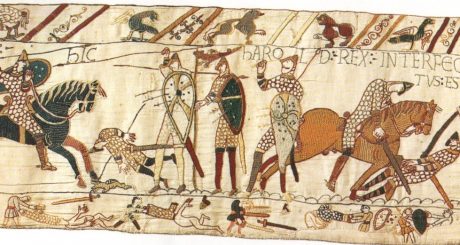
According to Maria Ressa in a tweet, “journalists shine the light”. She was very likely referring to the lofty position in the knowledge food chain she imagines her profession occupies — the be-all beacon of everything that is “true” in the Philippines, the “journalism” profession. Of course we all need to be reminded, having said that, that Ressa is, as we know, God’s Gift to Philippine Journalism. So that tweet of hers, indeed, was the self-serving tweet to end all self-serving tweets.
It seems it is time Filipinos apply a much-needed and long overdue fact check on the notion that “journalism” is humanity’s wellspring of all that is true.
The journalism trade is one that trades in stories. The stories may, in principle, be composed of “facts” (albeit arguably so in many cases), but the way these facts are strung together makes up a story that serves an agenda. For example. It is a fact that the colours we refer to as “blue”, “red”, and “white” are the colours blue, red, and white respectively. But when strung together a certain way, the term “red white and blue” stirs up a story in most people’s heads — narrative.
So when Maria Ressa says she is the Goddess of Humanity’s Light, she is actually saying that she is the be-all-end-all source of the only story Filipinos need to be guided by.
The claim that “journalism” is the beacon of all that is true so compelling because human beings’ brains are hard-wired by nature to latch on to stories and patterns. We see faces in the clouds where none exists and often find ways to connect two or more otherwise factual data points in an infinite variety of fallacious ways. The trade of “journalism” in much the same way as all the other trades that involve telling stories — advertising, PR, literature, politics, history, theology, religion etc. — exploit this interesting vulnerability of the human mind.
In contrast, the hard sciences (including mathematics) are fields where both the verification of facts as well as the constructs built on relationships between these facts are rigorously evaluated and tested. Proving a theorem for example is not a simple matter of stringing together axioms and postulates and seeing if the resulting pattern will “go viral” or win a Pulitzer Prize. In the sciences, a proof is not a story but a system of sound logical inferences.
Ressa practices her exploitative trade by making up stories that falsely link two or more facts. An example is her world-renowned claim that the regulatory compliance issues Rappler suffers “under the Duterte administration” is the result of an “assault on press freedom”. Forget for now that said “assault on press freedom” is not even a proven fact. The logic in how Ressa links the bases for the Philippines’ Security and Exchange Commission (SEC) action against Rappler to a “plight” she concocted in her head that “press freedom” is undergoing in the Philippines simply does not exist. It does make a good story though. And that is where the skill in the practice of journalism lies. In essence, the practice of “journalism” differs from literary fiction only in one aspect — its ingredients. Whereas a journalistic story is limited to the use of factual characters, events, and information, fictitious stories can make use of made-up characters, events, and information. Other than that little detail, journalism and literary fiction are essentially the same banana.
Journalism is therefore not a reliable source-of-truth because, unlike the sciences, there is no generally-accepted system to test the relational constructs between factual points used in a work of “journalism”.
The conclusion therefore is quite evident. Ressa’s claim that “journalists shine the light” is bullshit. This is disturbing because Philippine society had swallowed the notion that “journalism” is their guardian of truth hook line and sinker and is now choking on that poison. Journalism is not a solution to disinformation. It is actually a big part of the problem of disinformation. It is an unsound reference point for evaluating information and ideas and its rise, recent fall, and catastrophic loss of the public trust is the reason people have turned to even less reliable sources of truth. It’s high time the practice of “journalism” be put under the microscope and its practitioners made accountable for contributing massively to the flawed way many people think today.

No comments:
Post a Comment